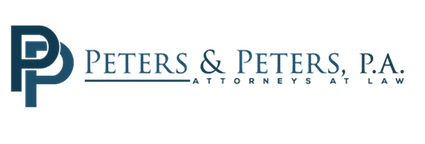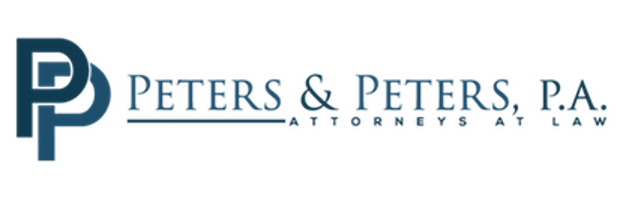Maintenance / Assessment Collections
The collection of unpaid maintenance fees and assessments are critical to the ability of an association to operate effectively. In fact, a majority of condominium and homeowners’ associations rely almost exclusively on its owner’s timely payment of assessments in order to meet the association’s obligations to maintain and operate the community. Without regular payment of assessments, community associations may be faced with no other option than to downgrade amenities, close recreational facilities, and reduce security – which negatively impacts the quality of life, happiness, safety, and property values. Florida law recognizes this and provides associations with various collection options. However, it is important that an association be represented by counsel who is well versed in the collections process to ensure that the association is recovering the maximum amounts possible, while remaining compliant with Florida law and the various nuances contained therein.
It is recommended that your association implement a fair and even-handed collection policy by establishing criteria to determine when a unit or lot is referred to collections. Once this collection policy has been determined, our office will diligently pursue the delinquent account while, at the same time, taking special care to ensure that the delinquent owner is treated with the compassion and respect that everyone deserves. In strict accordance with the Fair Debt Collection Practices Act and Florida Statutes, our office will prepare intent to lien (demand) letters, file liens, and file foreclosure actions, if necessary. If your collection policy allows for payment plans with the unit owner, our office will prepare the plan in accordance with the terms prescribed by the Board of Directors. Payment plans benefit both the association, by allowing it to recover needed funds immediately, and the unit owner, who may not have the wherewithal to bring their account current in one lump-sum payment.
Florida law allows an association to intercept the rent payments from a delinquent owner’s tenant, and provides the tenant with immunity from the owner/landlord if they comply with the association’s demand to pay their rent directly to the association. Further, when appropriate, we can assist your association in obtaining a court-appointed receiver to collect rent from a number of delinquent unit owners in the community and, with the court’s approval, rent vacant units of delinquent owners.
Often, there are other factors that impact an association’s ability to collect from delinquent unit owners such as, a foreclosure by the first mortgagee and/or the filing of a bankruptcy by the unit owner. These situations require counsel to provide practical advice on how to adapt the association’s collection strategy to properly assert the association’s claims and defenses in order to minimize risk and maximize recovery.
Contact our office today to put our knowledge and experience with community association law, collection of delinquent fees and assessments to work for your association!
Violation & Covenant Enforcement
Restrictive covenant enforcement can lead to disagreements between the Association’s board members and owners with regard to what is and is not permitted under the governing documents and Florida law. Generally, restrictions in the Association’s governing documents are given a presumption of validity, and reasonable and unambiguous restrictions will likely be upheld by Florida courts. However, restrictive covenants will be strictly construed in favor of free and unrestricted use of real property. Covenants should not be construed in such a manner which would defeat the plain and obvious purpose of the restriction. Thus, it is important to not only know what the governing documents say about the restriction, but also understand the purpose and intent of the restriction. Associations, through their board of directors, must uphold the covenants and restrictions set forth in their governing documents, or they may be faced with an argument of selective enforcement, waiver, or estoppel. When these defenses are present, an Association may be unable to enforce a particular regulation.
Covenant enforcement may require an Arbitration proceeding (condominium) or pre-suit mediation (HOA); and it is important that your Association is represented by knowledgeable counsel that can ensure that these proceedings, and all conditions precedent thereto, are handled properly and professionally.
Our firm has extensive experience in dealing with these issues and we are dedicated to helping our condominium and homeowners’ associations manage and resolve these disputes in a smart, practical, and efficient manner. Often, a reasonable and thoughtful approach – in lieu of costly and protracted litigation – will provide the fast and effective results that your Association is looking for.
Document Amendments, Revisions & Preservation
An Association’s “governing documents” generally refer to the Declaration of Condominium / Declaration of Covenants and Restrictions (HOA), Articles of Incorporation, Bylaws, Rules and Regulations, and other important documents that are relevant to the operation, maintenance and governance of the Association. These governing documents are created at the time the property is submitted to the condominium / homeowners’ association form of ownership, and, in conjunction with the applicable Florida Statutes, are intended to set forth the rights, obligations, and limitations on the enjoyment and use of real property and the individuals use interest therein.
Generally speaking, an Association’s governing documents are legal contracts, and board members and residents alike will benefit from a working knowledge of their contents in order to understand a parties’ rights and obligations in any given situation.
However, since many condominiums and homeowners’ associations were created 20-30 (or more) years ago, and Florida community association law has been constantly evolving, many governing documents are out of date. Thus, it is prudent that your Association review its governing documents with counsel to determine whether it would be beneficial to amend them to keep up with the evolution of Florida law.
Amending an Association’s governing documents requires attention to detail and a thorough understanding of the procedures required to do so. Almost every amendment requires the participation and approval of the Association’s membership – which is evidenced through a limited proxy submitted by the members of the Association.
Furthermore, proposals to amend existing provisions of the governing documents must contain the full text of the provision to be amended; new words shall be inserted in the text and underlined, and words to be deleted shall be lined through with hyphens. However, if the proposed change is so extensive that this would hinder the understanding of the proposed amendment, then a notation immediately preceding the proposed amendment stating: “substantial rewording of declaration see provision for present text”, may be used instead. Amendments must be evidenced by a Certificate of Amendment, executed with the formalities of a deed. An amendment becomes effective when it is recorded in the public records of the county where the declaration is recorded.
One issue specific to homeowners’ associations is the Marketable Record Title Act (MRTA) and its impact on an Association’s Covenants and Restrictions.
Simply stated, MRTA was enacted to ensure that any person vested with any estate in land of record for 30 years or more, is deemed to have a record title to such land, which shall be free and clear of all claims (subject to limited exceptions). However, as a consequence of MRTA, some homeowners’ associations found themselves without the authority to enforce their covenants, levy and collect assessments, provide maintenance, etc. Reviving a homeowners’ association’s governing documents once they’ve expired due to MRTA is a difficult process, which can be avoided if the Association preserves its Covenants and Restrictions prior to the 30-year MRTA expiration. Contact our office today to discuss how we can help your Association amend, revise or preserve its governing documents!
Other Matters
Peters & Peters can assist your Association in other matters, including, but not limited to: Meeting Notices / Agendas / Budget Process Oversight, Elections / Annual Meetings, Contracts & Agreements, Transactional Matters, Code Compliance Issues, Lender Foreclosure & Bankruptcy Representation, General Legal Counsel, and Practical Conflict Resolution.
CALL FOR A CONSULTATION

